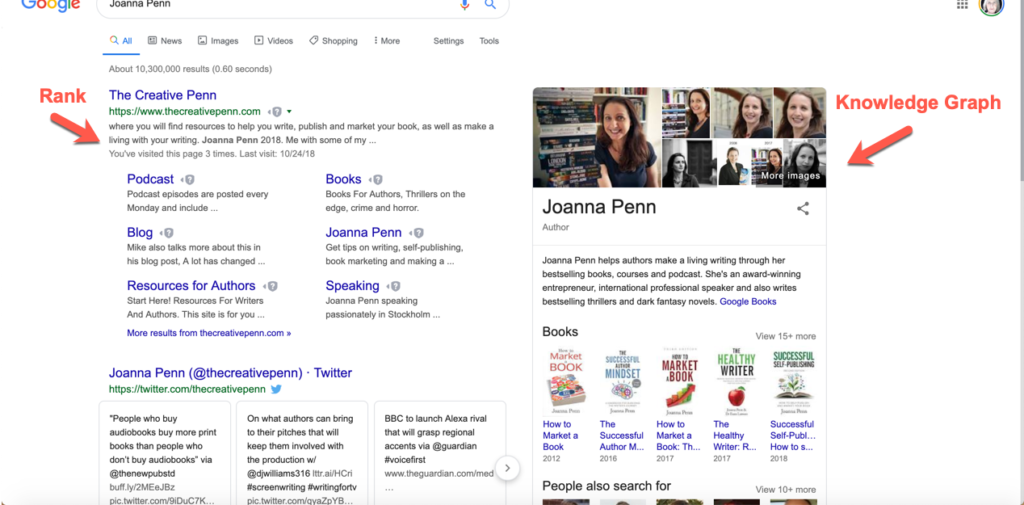Have you asked a question out loud to one of your devices in the last week? Did you ask Siri the weather on your Apple Watch? Did you ask Google Assistant to provide you directions? Did you ask Alexa for a flash news briefing or to play some music? These voice requests are becoming more and more common with some predicting that voice may be over 30% of search from 2020.
Think about that from a book marketing perspective. If someone is in their car and wants to listen to an audiobook, will yours come up in voice search? If you want traffic to an article, can it be found by voice? Like ensuring your book can be found through typing a Google search, it’s becoming increasingly important to be found in voice search. In this article, Zara Altair gives some tips.
Authors use categories and keywords to help readers find their books. Digital retailers like Amazon use these keywords to help readers find books that relate to their interest. In the online world. search engines used to work similarly using keywords to match information to a searcher’s request.
In the larger world of online search, search engines like Google and Bing are shifting how they discover and present information to people who search for something like your book online. The search engines are shifting from keywords to phrases and topics. The search engines base their results on what matches the natural language of the person searching.
As people use mobile devices like smartphones and tablets more people search using voice and natural language than typing in keywords on a computer screen. According to Statista, the number of mobile search users is expected to increase to 221 million users by 2020.
If you’ve ever said ‘OK Google’ and asked for information, you know how this works. And you know that a voice query (question) gets one answer. When people search for a good book in your genre or you as an author, you want to be the answer.
Unlike search results on a screen where there is a top answer and then other results, voice gives one answer. You’ll be vying with your competitors for the one answer. It may seem unfair but there’s no second choice with voice results. Search engines look for featured snippets, information about you above the ranking list, and knowledge graphs as the first source of the one answer.
When you follow the tactics below, you are better able to guide search engines on the results they display for readers.
You can see this on your computer by comparing the old search results of rank with a featured snippet with the new search results Knowledge Graph side by side on the page.
Search for your author business (real name or pen name). If Google has created a knowledge graph, claim it. What’s important for you in this new world of search results is the Knowledge Graph and a featured snippet about you as an author and each of your books. These are the results that voice search uses.
How To Create Your Author Strategy for Voice Search
Authors can prepare for this shift in how people search and how search engines deliver results by taking steps to implement a search strategy for their online presence. Each step is a tactic to increase the probability of being the right answer for mobile searchers.
1. Business Mindset
As an author, you are a business. In terms of search, you are an entity. Everything online about you is a component of how search sees you as an entity. As a business, you need to create a consistent message about yourself as an author and your books wherever you are online.
- Blogs
- Social network postings
- Emails
- Articles written for websites or printed publications such as magazines or newspapers
- Postings made to a user review section of an online vendor or marketplace
- User reviews submitted to various existing user review clearinghouses (e.g. Yelp)
- Podcasts
Search engines gather information about you from a wide variety of sources. The more these sources align, the better search engines understand your business entity, you as an author.
The most important action you can take is to present a consistent message about your author business, the entity, online.
Each of your books is also an entity, so you need to apply the same strategy to each of your books.
2 Organize and Present
Search engines look for clear and concise information to answer searcher questions. You have no control over what Google or any other search engine returns as the result of a search. But you have methods to direct search engines to appropriate answers for a search query.
Think blocks of text and soundbites that quickly answer a searcher’s question.
For instance, in your author blog articles break up paragraphs into short blocks of information.
- Use headers and subheads to tell search engines what each section of your page or article is about.
- Use the same tactic for the book description for each of your books. Break up short paragraphs with headers to lead readers down the page and help search engines determine what you have in each section.
- Use bullet lists for concise, easily searchable information. Non-fiction authors can use bullet lists in the book description.
Use these tactics when writing about yourself as an author and for each one of your books. The more you organize your content on the web into chunks around one phrase the easier it is for search engines to find you and present the answer.
- Use meta descriptions for each page on your website. Depending on your website create the meta description in the SEO section of your site. A meta description is a short 150-166 character description of the page. It’s like a mini-ad for the page. This works well for your author page and for each book.
Here’s an example: Heather Bailey will sweep you away in her book Cliff Hanger. Sparks fly and danger lurks when Tana and Jim meet. Romantic suspense fans will love the thrills.
Put the most important information first like your author name and the book title. Google can cut off the description at any point. And, the search engine will look at the page and may pull something else from the page. You have no control over what Google displays, but a well-written meta description helps.
Avoid long paragraphs that cram a lot of information into one paragraph. Break up what you say with distinct topics and short paragraphs addressing each topic.
Clear, concise, and organized information increases your chances of search engines returning what you want your readers to hear.
A webinar Meet the One Answer Challenge with software search engine optimization (SEO) tool SEMrush, goes into more depth about writing for voice search.
3. Go Wide
When you publish your book at different digital retailers (wide distribution) like Apple Books, Nook, and Google Play, you help search engines discover your books. It’s a tactic for making your books discoverable on different voice devices because each voice device searches first within its own framework. Alexa searches on Amazon, Siri searches in Apple Books, Google searches in Google PlayBooks.
- Amazon Alexa
- Apple Siri
- Google Voice Search
- Windows Cortana
For authors who work exclusively with Amazon and receive a bulk of their income from Kindle Unlimited, the choice of going wide is a personal decision. You’ll need to balance your income stream with the desire to improve discoverability online.
4. Audiobooks
Audiobooks are the perfect medium for voice. An audiobook is your book in voice. Each voice device can read audiobooks. Readers can ask their voice device to read your book to them. If a reader has not purchased the audiobook, the device will tell them where to buy the book.
Each voice device has a separate way to access audiobooks, but all devices can play the audiobook to the listener.
Audio editions of your book are powerful connections for voice devices.
5. Create a Frequently Asked Questions (FAQ) Page
Search engines like frequently asked questions. An FAQ page consolidates basic information about you as an author with questions and answers. One of your answers may be just what a reader is looking for.
Think readers first and what they want to know about you. The best questions are those readers and prospective readers ask about you and your books. Use questions your email subscribers ask.
Assemble 10 to 15 of the questions readers ask the most and create a short, concise answer. Most website tools offer a pre-formatted FAQ page. If you’ve ignored it before, add it to your website.
Technical Pro Tip
Authors who love tinkering with tech can create personal voice answers for Alexa and Google. Create a skill in Alexa and an action for Google. Both search giants have simplified developing apps for their voice devices.
Use Alexa Skills Blueprints and Google Template for Actions to get started.
Voice Search is Here to Stay
Each of the five actions is a tactic in your strategy to become the one answer in voice search. Overall, you want to present yourself and your books with clear, concise text. Use short paragraphs. Use headers to tell search engines the topic of each section.
There are no guarantees. Search engines can choose whatever they sense is important on a web page. Use a consistent strategy about your author business and your books wherever you are online. When you are clear, readers can find your books as the one answer.
Are you ready to embrace the voice-first revolution? Please leave your thoughts below and join the conversation.
 Zara Altair creates website relational search management and semantic writing for small business clients. She writes historical fiction, The Argolicus Mysteries, where politics and murder collide in an Italy ruled by the Ostrogoths. In addition, she coaches beginning writers to Write A Killer Mystery. Find her video tutorials on YouTube.
Zara Altair creates website relational search management and semantic writing for small business clients. She writes historical fiction, The Argolicus Mysteries, where politics and murder collide in an Italy ruled by the Ostrogoths. In addition, she coaches beginning writers to Write A Killer Mystery. Find her video tutorials on YouTube.





